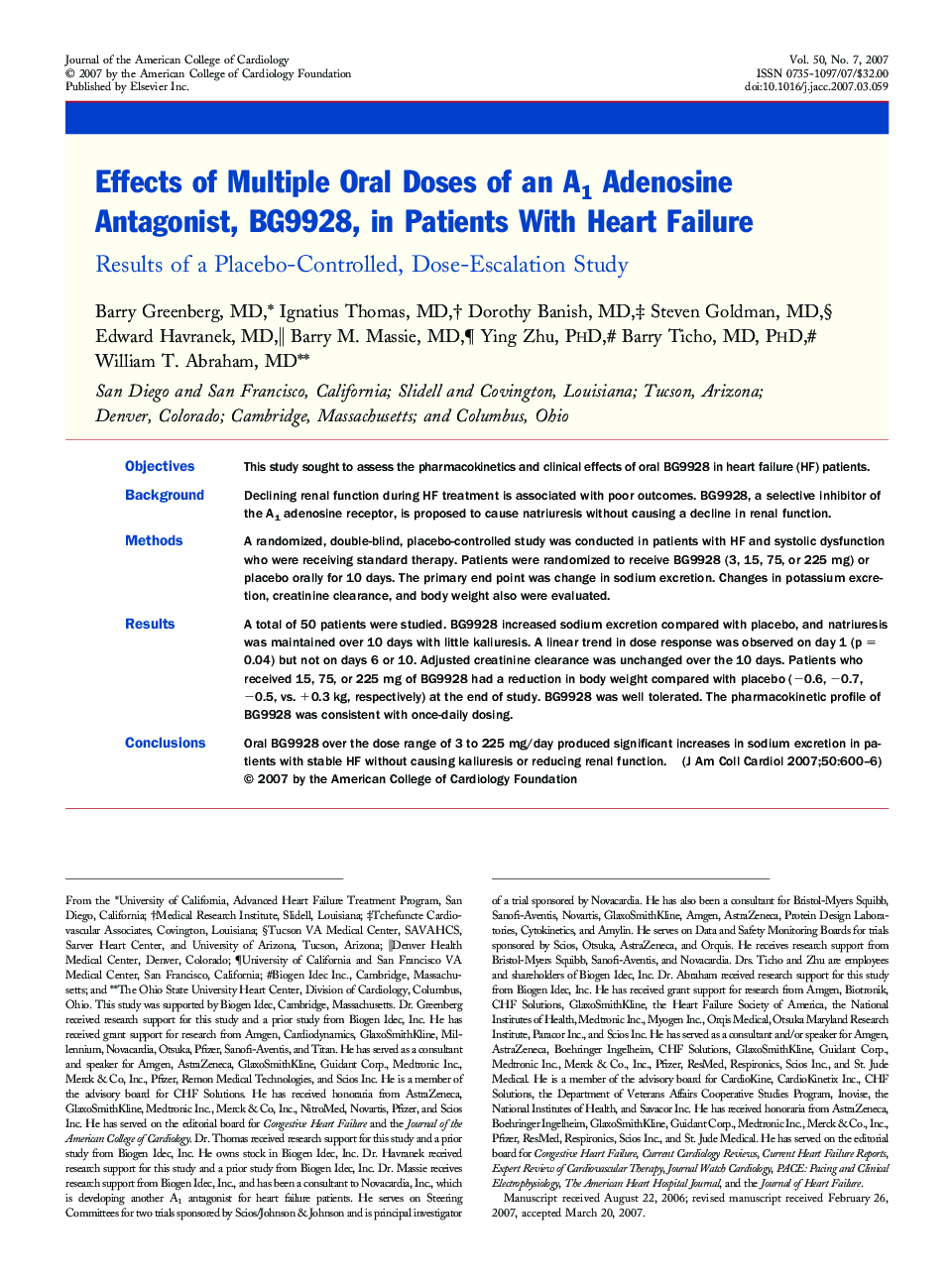| Article ID | Journal | Published Year | Pages | File Type |
|---|---|---|---|---|
| 2954614 | Journal of the American College of Cardiology | 2007 | 7 Pages |
ObjectivesThis study sought to assess the pharmacokinetics and clinical effects of oral BG9928 in heart failure (HF) patients.BackgroundDeclining renal function during HF treatment is associated with poor outcomes. BG9928, a selective inhibitor of the A1adenosine receptor, is proposed to cause natriuresis without causing a decline in renal function.MethodsA randomized, double-blind, placebo-controlled study was conducted in patients with HF and systolic dysfunction who were receiving standard therapy. Patients were randomized to receive BG9928 (3, 15, 75, or 225 mg) or placebo orally for 10 days. The primary end point was change in sodium excretion. Changes in potassium excretion, creatinine clearance, and body weight also were evaluated.ResultsA total of 50 patients were studied. BG9928 increased sodium excretion compared with placebo, and natriuresis was maintained over 10 days with little kaliuresis. A linear trend in dose response was observed on day 1 (p = 0.04) but not on days 6 or 10. Adjusted creatinine clearance was unchanged over the 10 days. Patients who received 15, 75, or 225 mg of BG9928 had a reduction in body weight compared with placebo (−0.6, −0.7, −0.5, vs. +0.3 kg, respectively) at the end of study. BG9928 was well tolerated. The pharmacokinetic profile of BG9928 was consistent with once-daily dosing.ConclusionsOral BG9928 over the dose range of 3 to 225 mg/day produced significant increases in sodium excretion in patients with stable HF without causing kaliuresis or reducing renal function.
